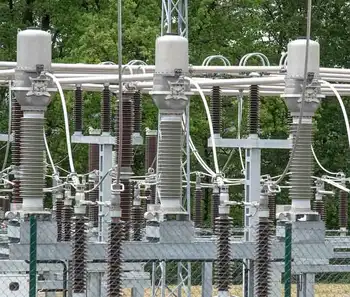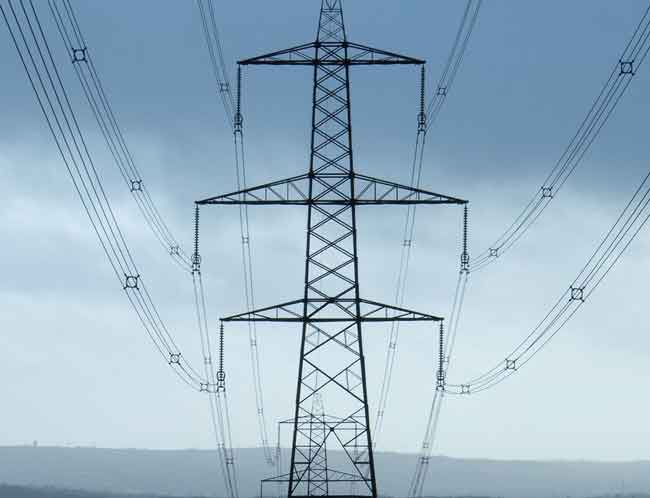Bangor Hydro Seek FERC Approval on Proposed Transmission Line
By National Grid
Protective Relay Training - Basic
Our customized live online or in‑person group training can be delivered to your staff at your location.

- Live Online
- 12 hours Instructor-led
- Group Training Available
The NEL, as currently proposed, is a new underground transmission line that would stretch approximately 220 miles from northern Maine to northeastern Massachusetts by 2016.
The new line will provide a critical connection to the vast renewable and carbon-neutral energy resources of northern and eastern Maine and eastern Canada. "This proposed project is yet another example of National Grid's commitment to and leadership in expanding the region's portfolio of clean energy resources," said Tom King, president, National Grid USA. "Having access to the significant renewable and carbon-neutral energy resources in Maine and eastern Canada makes this a huge win for New England energy consumers, who will enjoy the benefits of cost-competitive, clean and reliable energy for years to come."
"The Northeast Energy Link will serve as a pathway for the region's energy independence. Projects like this one make it possible to develop the region's renewable energy resources and reduce its dependence on carbon-based fuels for electricity generation," said Gerry Chasse, President and Chief Operating Officer of Bangor Hydro Electric Company. "We are pleased to be working with a number of private companies and state governments to improve the region's energy independence by bringing clean, indigenous energy to market at a cost that will be competitive, predictable, and stable for the long term."
NEL, which is in the preliminary stages of development, is expected to have a capacity of 1,100 megawatts. It is being proposed as an underground, high voltage direct-current line. The companies will evaluate a number of potential routes, including one that would utilize existing corridors in eastern Maine, New Hampshire and Massachusetts. By utilizing such existing rights-of-way to the greatest extent possible, National Grid and Bangor Hydro are seeking to mitigate potential effects on the environment and the communities where the line would be located. It is important to emphasize that the project route has not yet been chosen.
Under the proposed project, renewable generators would pay to use NEL's transmission capacity. First Wind Holdings, LLC, based in Boston, Mass., plans to build wind farms in northern and eastern Maine and would purchase the majority of the proposed transmission line's capacity. Remaining capacity, if any, would be sold to other generators.
While the project is in the preliminary stages, significant research has been undertaken related to energy consumer benefits, siting, and the impact the new line would have on the New England power system. Delivered renewable supply over NEL was found to be cost-competitive with other means of meeting state Renewable Portfolio Standards. Further research, site planning and permitting preparation are planned for this year, along with the negotiation of a Transmission Service Agreement with First Wind.
Siting and permitting work for NEL are expected to continue over the next two to three years, followed by an estimated three-year construction period. As part of this work, National Grid and Bangor Hydro plan to reach out to communities where the proposed new line might be located to begin discussions about possible routes and other considerations. The companies anticipate the project will be completed at the end of 2016.
Additional information about NEL can be found at http://www.northeastenergylink.com.
National Grid is an international energy delivery company. In the U.S., National Grid delivers electricity to approximately 3.3 million customers in Massachusetts, New Hampshire, New York and Rhode Island, and manages the electricity network on Long Island under an agreement with the Long Island Power Authority LIPA. It is the largest distributor of natural gas in the northeastern U.S., serving approximately 3.4 million customers in Massachusetts, New Hampshire, New York and Rhode Island. National Grid also owns over 4,000 megawatts of contracted electricity generation that provides power to over one million LIPA customers.
Bangor Hydro Electric Company is an electric utility wholly-owned by Emera Inc. Bangor Hydro serves 117,000 customers in an area encompassing 5,275 square miles in eastern and east coastal Maine. Bangor Hydro is a member of the New England Power Pool and is interconnected with other New England utilities to the south and with the New Brunswick Power Corp. to the north. Visit us at www.bangorhydro.com
Emera Inc. is a growing energy and services company with $6.5 billion in assets and 2010 revenues of $1.6 billion. The company invests in electricity generation, transmission and distribution, as well as gas transmission and utility energy services. Emera's strategy is focused on the transformation of the electricity industry to cleaner generation and the delivery of that clean energy to market. Emera operates throughout northeastern North America, in three Caribbean countries and in California. More than 80 of the company's earnings come from regulated investments. Emera common and preferred shares are listed on the Toronto Stock Exchange and trade respectively under the symbol EMA and EMA.PR.A. Additional information can be accessed at www.emera.com.











